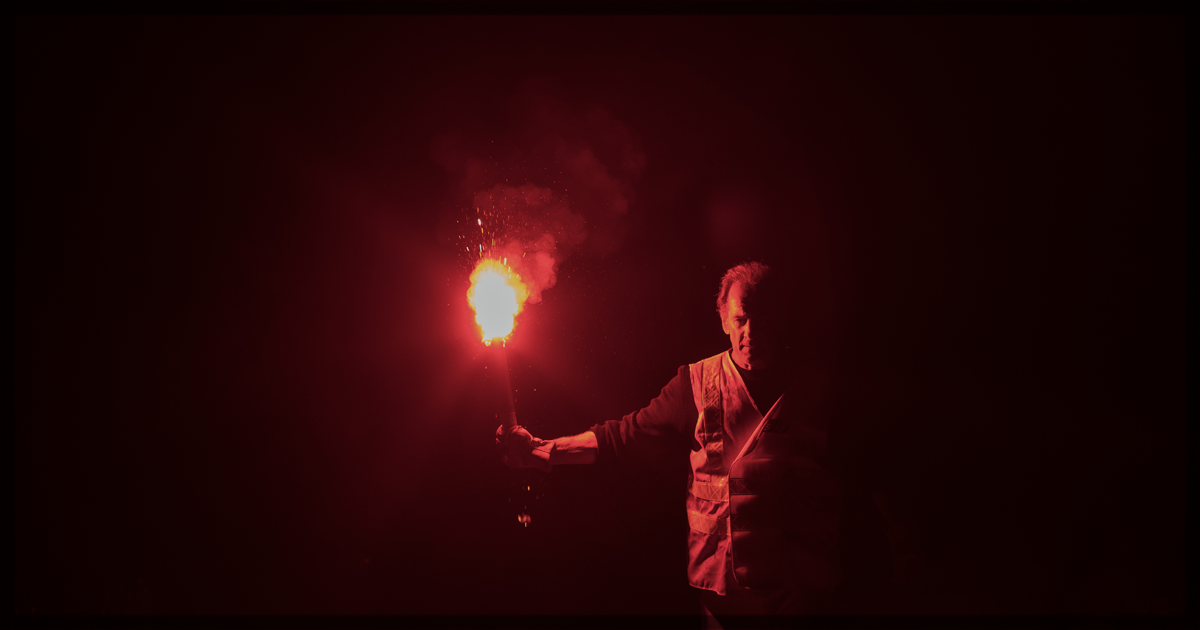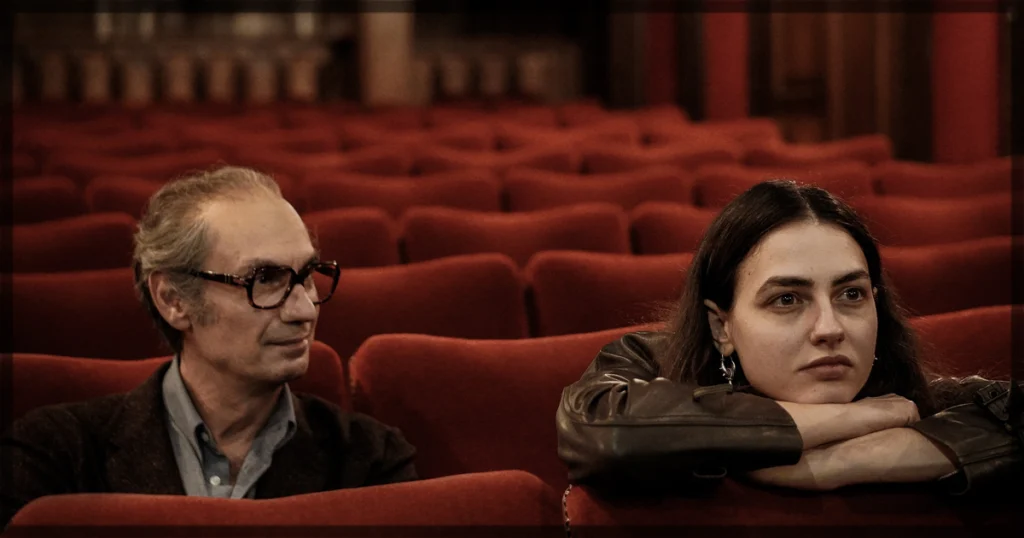They live in Metz, a city in northeastern France close to the borders with both Germany and Luxembourg. Both sons, who are in their very early twenties, cheerfully live at home. The older Fus (Benjamin Voisin) studied to be a welder but has been unable to find paying work so spends his time at the gym. The younger Loulou (Stefan Crepon) has extended his high school studies in order to improve his chances of being accepted into the best colleges in the nation. Their father Pierre (Vincent Lindon, who won the Volpi Cup for Best Actor at the Venice Film Festival), works as a lineman on the railways; their mother has been dead for a very long time. But they are a loving and happy family, sharing the chores without Pierre having to ask and taking turns to cook for each other. The only issue is that Fus is an immigrant-hating fascist.
The original French title of the film translates to Playing with Fire but the sense the English title, The Quiet Son, wants to convey is that of the nice neighbour who kept to himself before some public notoriety. Writer-directors (and sisters) Delphine and Muriel Coulin, who adapted the script from a novel by Laurent Petitmangin, are interested both in why someone like Fus (it’s a nickname from his mother, short for foosball) might embrace right-wing ideology, but equally why the love of a parent as involved as Pierre might not be enough to prevent that. The family is staunchly working-class – Pierre is still walking the railway lines at night with a flare before every shift to check they are clear – but he has a steady job with a guaranteed pension, something that no longer exists for men of Fus’s age. For his part Loulou thinks Pierre is much too hard on Fus, and that’s part of the reason why Fus has gone in this direction.
Because of his intelligence Loulou has a ticket to middle-class stability that Fus certainly doesn’t. It’s to his eternal credit that Fus respects this, expressing no jealousy whatsoever, and even leveraging his connections to find his little brother a decent student apartment in Paris. It’s a seventh-floor walk-up, and the shower basin folds out from under the kitchen sink, but it’s in their budget and clean (so basically a miracle). Fus’ intelligence is in his body; there’s a scene where he hangs on to a car window, legs curled up, laughing, as Pierre and Loulou start driving away. At other times he parkours up to the second floor of the house instead of just walking up the staircase. The brothers’ loyalty to each other is heartwarming, as is the scene at a garden party where Fus begs Pierre to teach him how to dance. Pierre does, right there in front of everybody, swinging his son around and correcting his steps as Fus laughs in delight and does his best to copy his dad. It’s impossible to imagine an American father and son being so physically casual and relaxed with each other. And then Fus goes out with his friends to batter some black people unconscious.
Mr. Lindon has been a huge cultural presence in France for decades, not just as an actor but also because of his personal life, which includes former relationships with a daughter of a prime minister and a princess of Monaco. At the end of the film he is given a monologue where he is basically speaking on behalf of the French nation to try and figure out why people are drawn to the dark side. From other actors this would be much too much but Mr. Lindon handles it with a finesse and just the right amount of emotion so that it feels like a heart bleeding onto the floor. His son is part of himself and he cannot bring himself to turn his back on his son, but neither can he accept Fus’s actions nor condone his ugly beliefs. How much of his child’s choices are his responsibility? Even though his child is an adult?
Mr. Voisin is remarkable as someone who has calmly chosen an ethos which makes sense to him, one which he is prepared to back up with his body, and who absolutely refuses to be judged by the people he loves simply because this ethos involves hating everyone who is different from him. For his part, Mr. Crepon does excellent work as the peacemaker, who understands why his brother is making these horrible choices and loves him, without ever agreeing with him.
There’s an unusual absence of women in the film; in fact there are only two small speaking female parts. Pierre works a very masculine job and when he goes out, which isn’t often, it’s to drink a solitary glass of wine in a café filled with similarly solitary men. Fus doesn’t appear to be interested in dating, while Loulou’s laser focus on his studies has prevented that. But having some women around would have offered these men a different future, and the message here seems to be that hatred and fascism move in when hope for something better has gone out the door. The Coulin sisters are asking the French nation to think about the future it has to offer young people in Fus’s position. There is no excuse for racism AND it’s understandable it’s easier to become a massive racist than defeat the complicated layers of capitalism that keep people without college in the gig economy, if they can find any job at all. But just because there are no easy answers doesn’t mean a society shouldn’t work to find them, and just because your son does horrible things doesn’t mean you stop loving him. The Quiet Son examines these complex issues with the rare combination of clear eyes and an open heart. It’s a remarkably powerful film.
The Quiet Son (Jouer avec le Feu) recently screened at the Venice International Film Festival.
You might also like…
‘The Time It Takes’ Movie Review (Venice)


